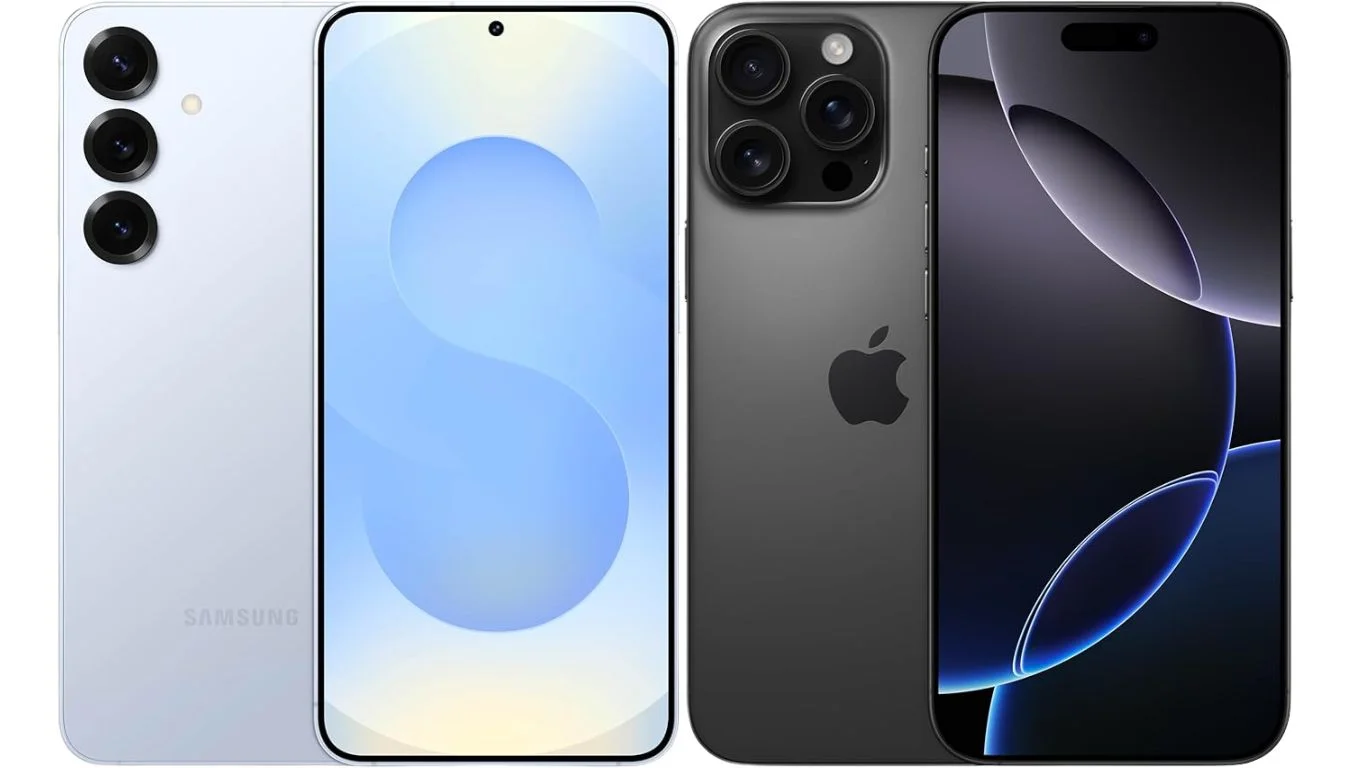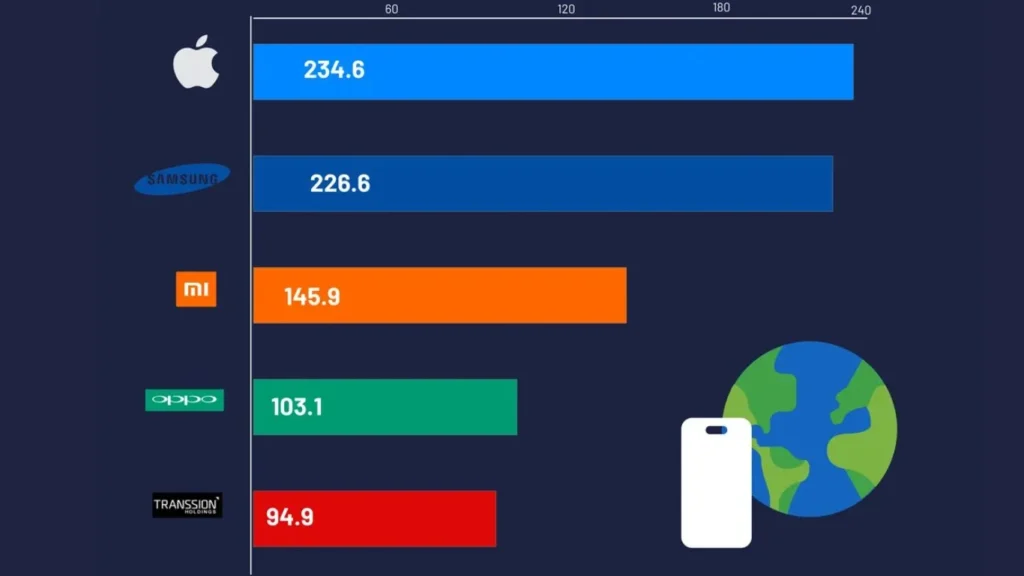
As of March 2025, Apple leads the UK smartphone market with a 48.6% share, while Samsung holds 32.6%, according to Statcounter. This data underscores Apple’s strong presence in the UK, surpassing Samsung by a significant margin.
Apple’s Market Position
Apple’s dominance in the UK market is attributed to several factors:
- Brand Loyalty: Apple has cultivated a dedicated customer base over the years, with many users remaining committed to the brand due to its ecosystem and user experience.
- Product Innovation: The launch of the iPhone 16 series has been well-received, contributing to increased sales and market share.
- Retail and Carrier Partnerships: Strong relationships with UK retailers and mobile carriers have facilitated widespread availability and promotional support for Apple devices.
Also Read: How to Free Up Storage on Your Phone
Samsung’s Market Position
Samsung remains a formidable competitor in the UK, holding a 32.6% market share. Despite trailing Apple, Samsung’s position is bolstered by:
- Diverse Product Range: Samsung offers a wide array of smartphones catering to various segments, from budget-friendly models to premium devices.
- Technological Advancements: Innovations such as foldable screens and high-quality camera systems have kept Samsung at the forefront of smartphone technology.
- Global Brand Recognition: Samsung’s global presence and reputation contribute to its strong performance in the UK market.
Read More: How to Use NFC on Your Smartphone
Market Dynamics
The UK smartphone market is characterized by:
- Consumer Preferences: UK consumers exhibit a preference for high-quality, feature-rich smartphones, which both Apple and Samsung provide.
- Economic Factors: Economic conditions influence consumer spending, affecting smartphone sales and brand performance.
- Technological Trends: Advancements in 5G technology and AI integration are shaping consumer expectations and influencing brand strategies.

Read More About: How to Share Your Internet Using Mobile Hotspot
FAQ’s
As of 2025, Apple leads the UK smartphone market with a significant 48.6% market share, while Samsung follows with 32.6%. Apple’s strong ecosystem, product innovation, and brand loyalty contribute to its market leadership.
Apple’s dominance in the UK can be attributed to its strong brand loyalty, continuous product innovation (e.g., the iPhone 16 series), and extensive retail and carrier partnerships that ensure widespread availability and promotional support.
Samsung competes with Apple by offering a diverse range of smartphones, including budget-friendly and premium models. Technological innovations such as foldable screens and high-quality camera systems also keep Samsung competitive in the UK market.
The significant difference in market share is largely due to Apple’s dedicated customer base, its robust ecosystem of devices, and its focus on a premium, seamless user experience. Samsung, while competitive, is generally seen as offering a wider range of devices, which may affect its share in the premium segment.
Key technological trends influencing the UK mobile market include 5G connectivity, advancements in AI integration, foldable screen technology, and the growing demand for high-performance cameras, which both Apple and Samsung are actively incorporating into their devices.
Conclusion
In 2025, Apple leads the UK smartphone market with a 48.6% share, while Samsung holds 32.6%. Both brands continue to innovate and adapt to consumer demands, maintaining strong positions in a competitive market.
For consumers, the choice between Apple and Samsung often comes down to personal preference regarding operating systems, device features, and brand loyalty. As both companies continue to evolve, the UK smartphone market remains dynamic and competitive.





